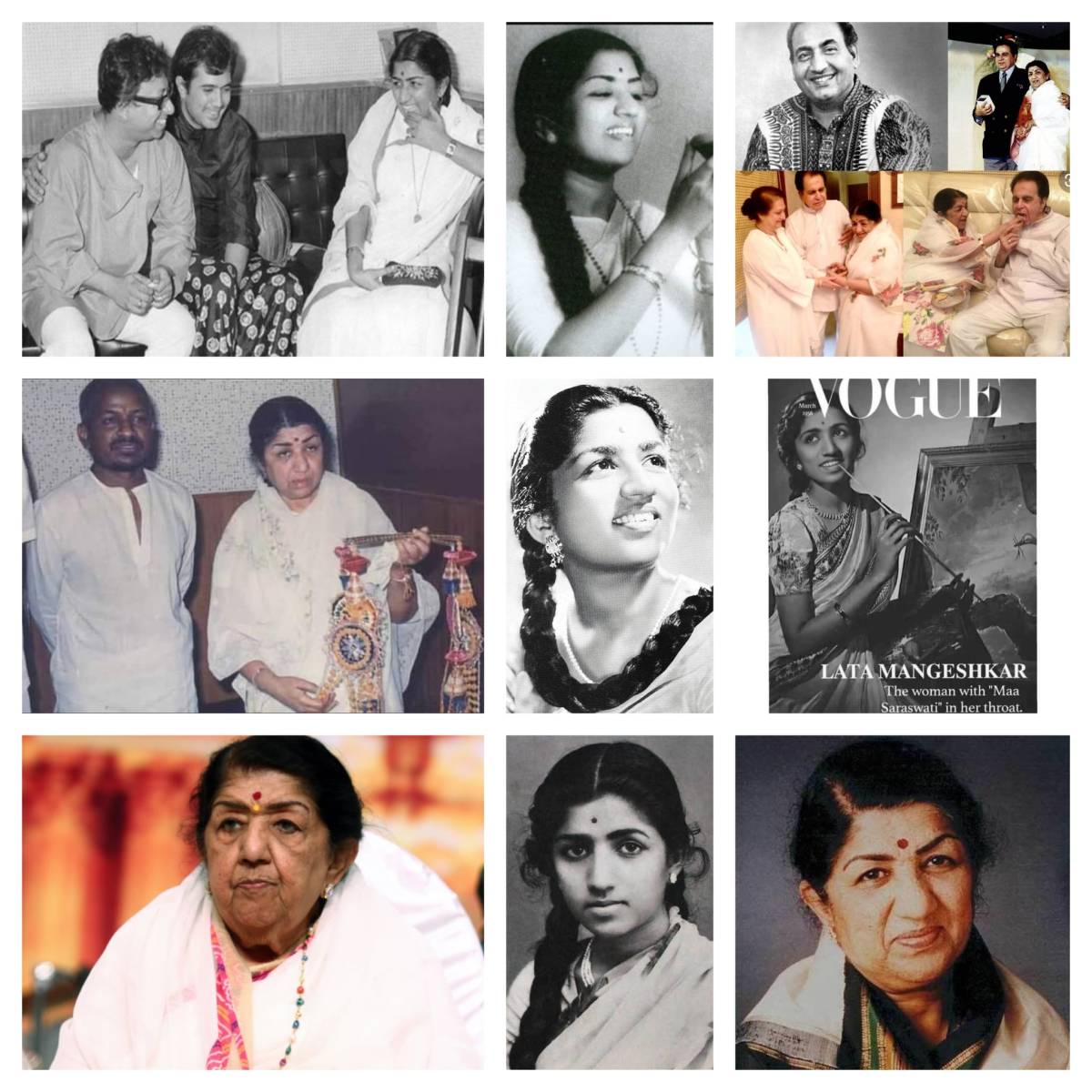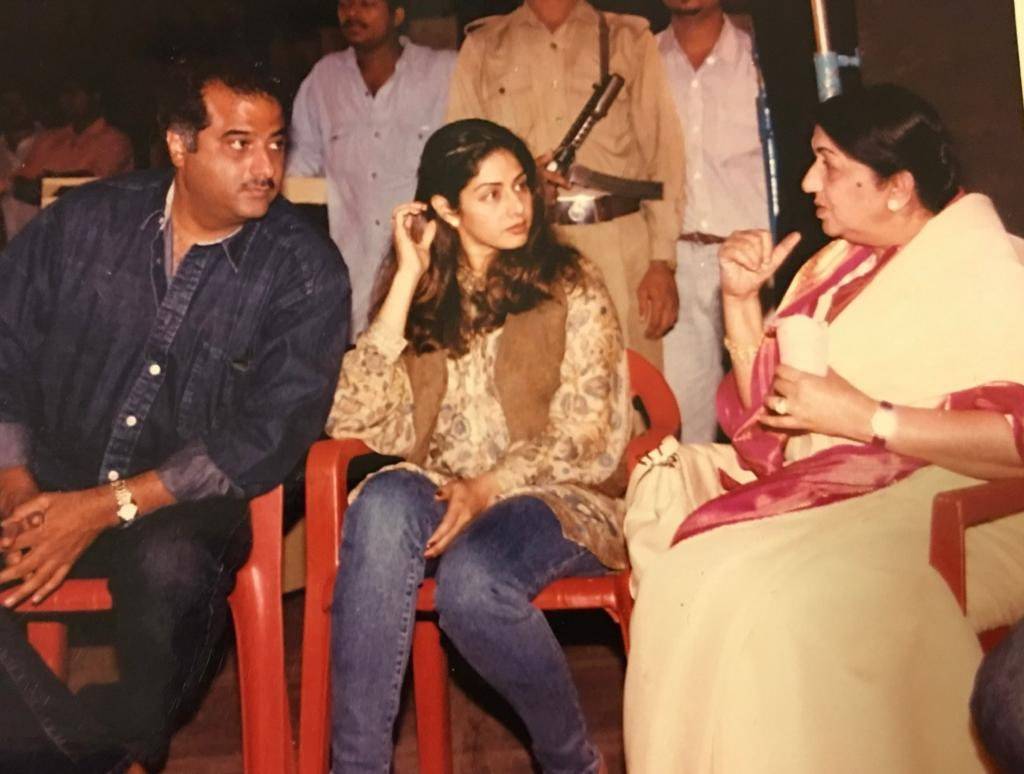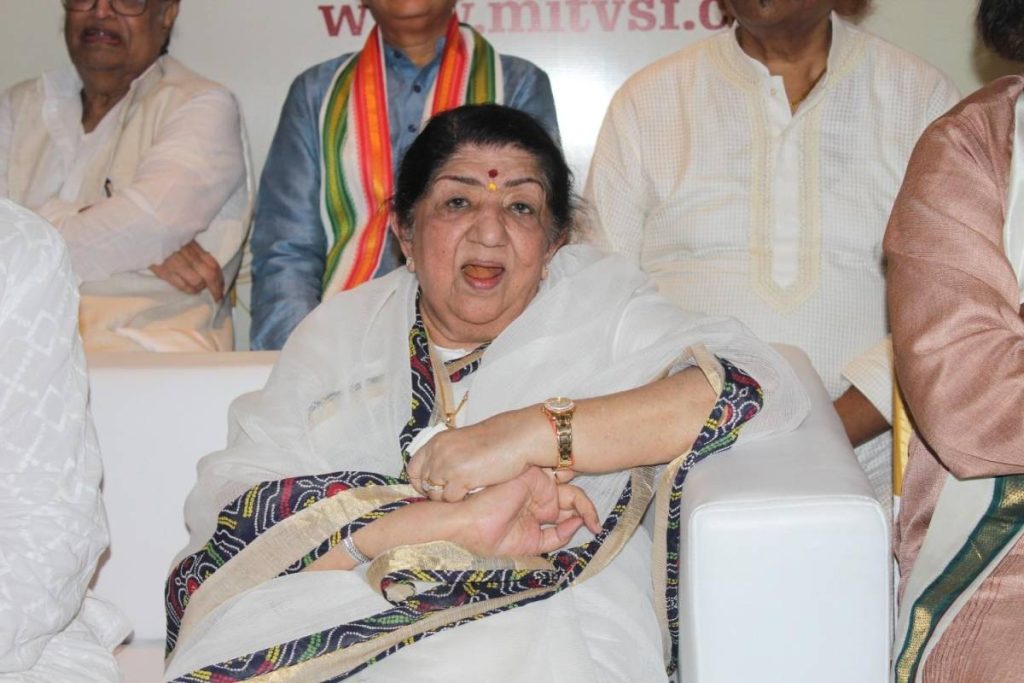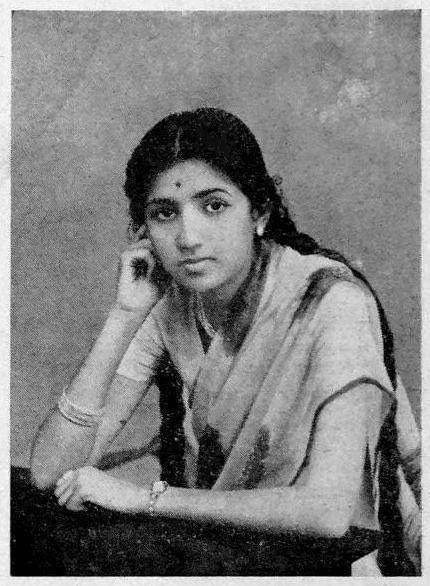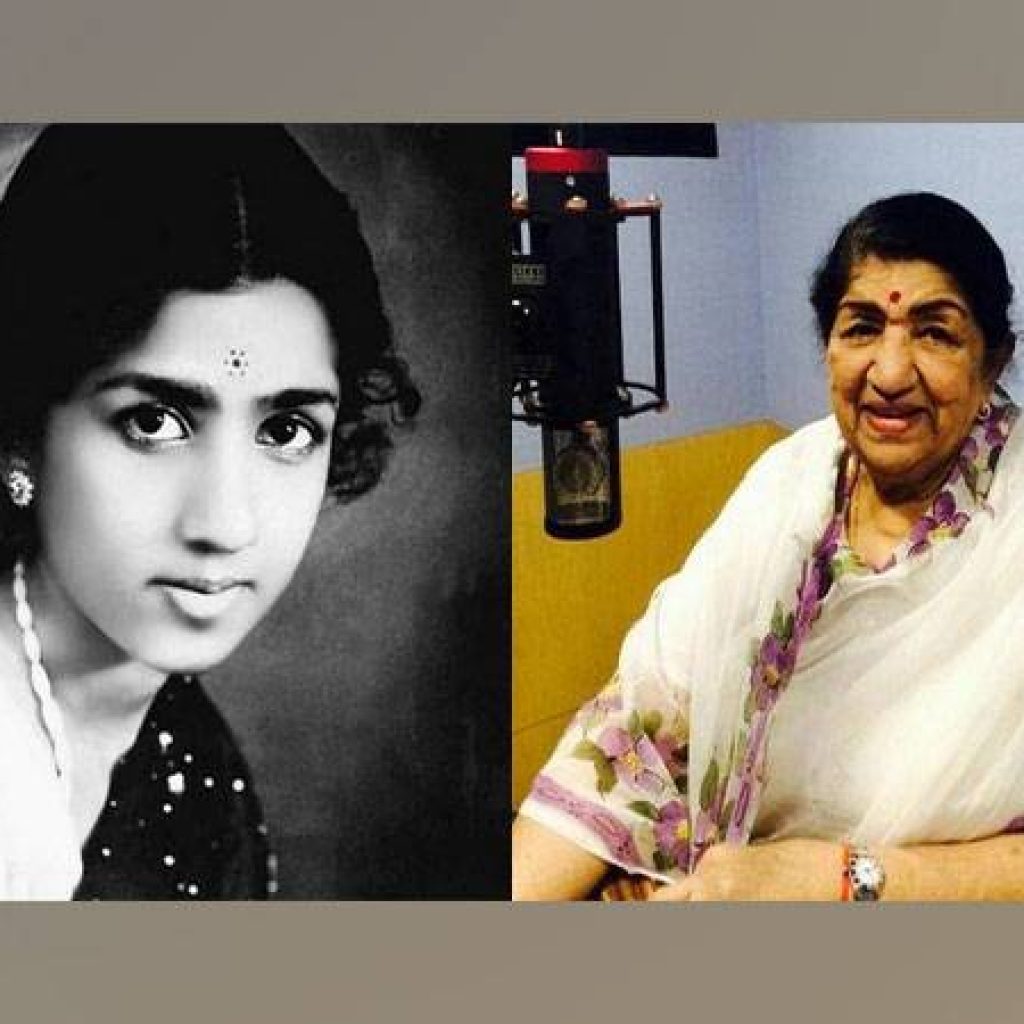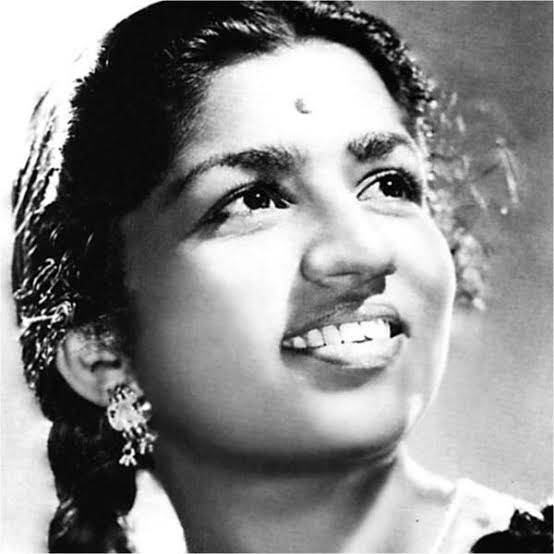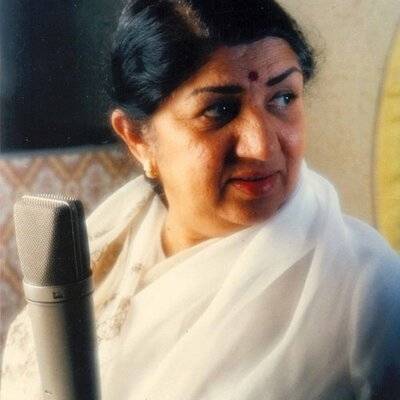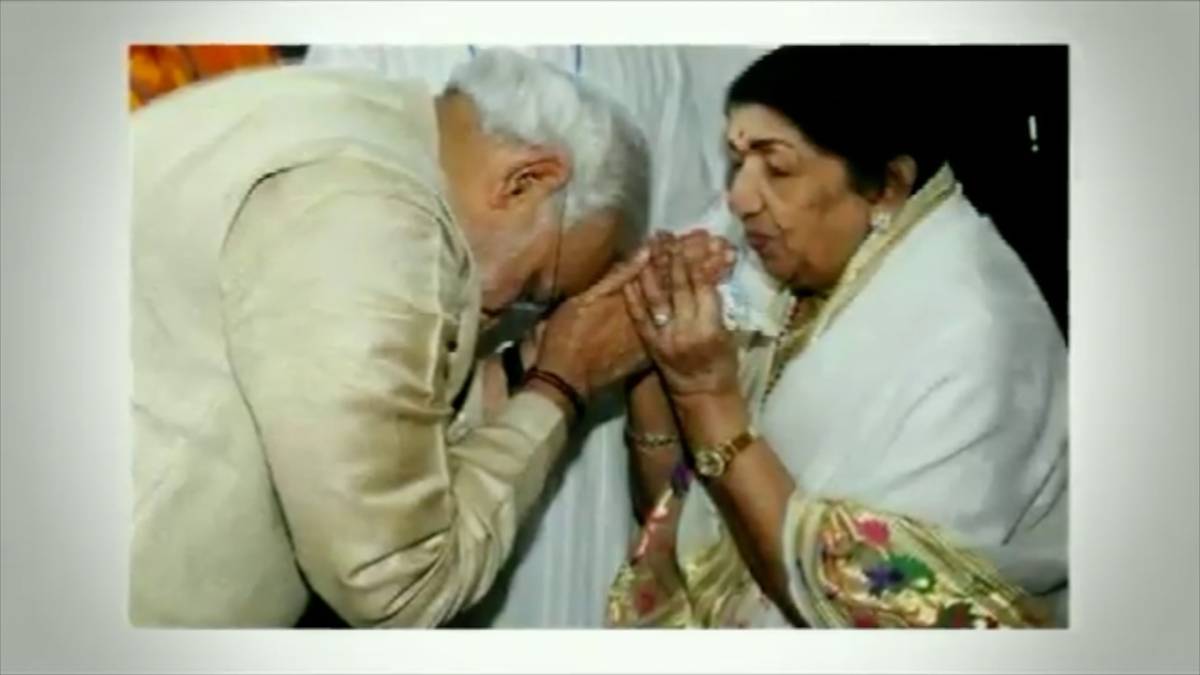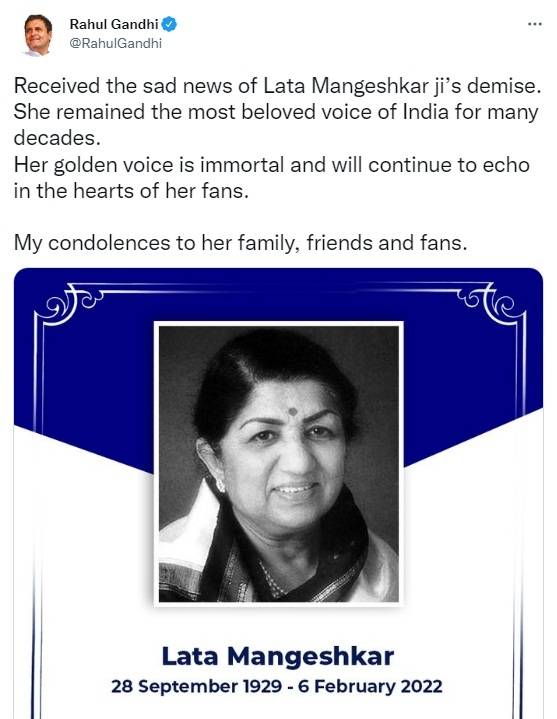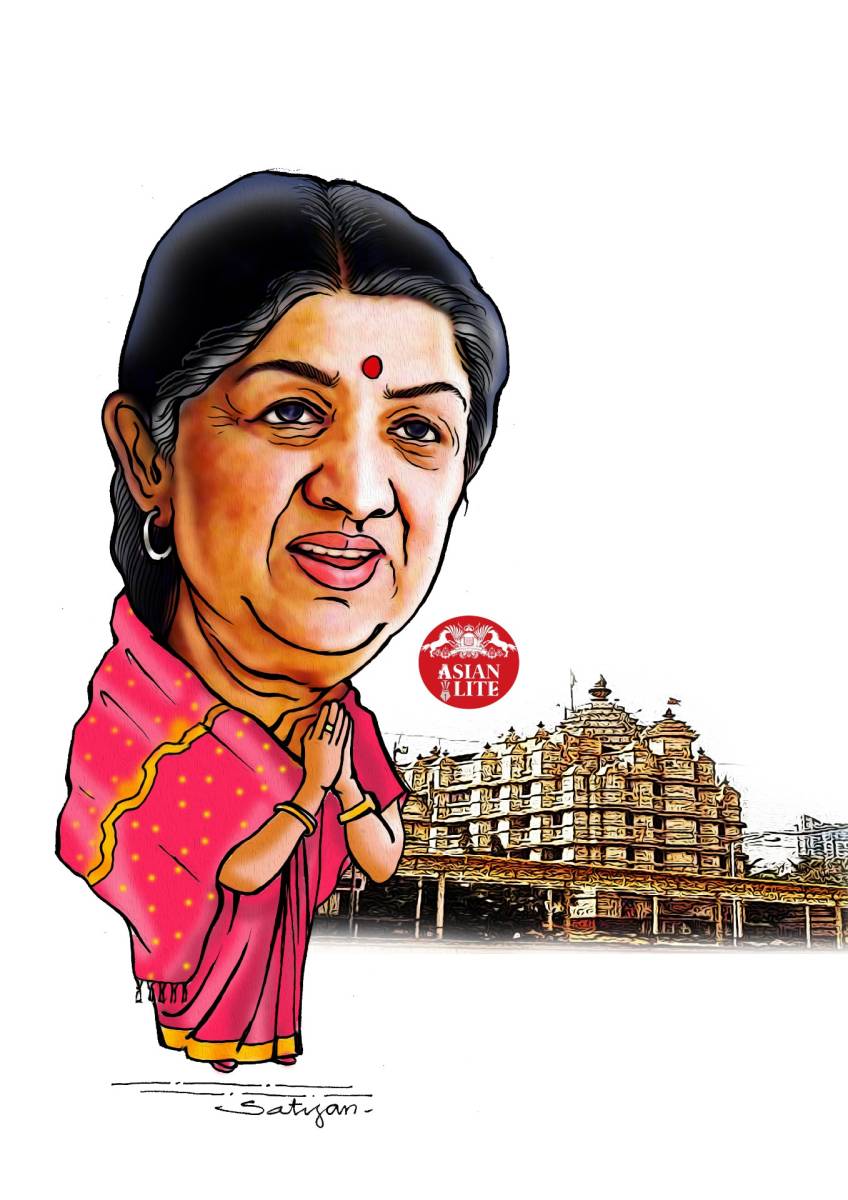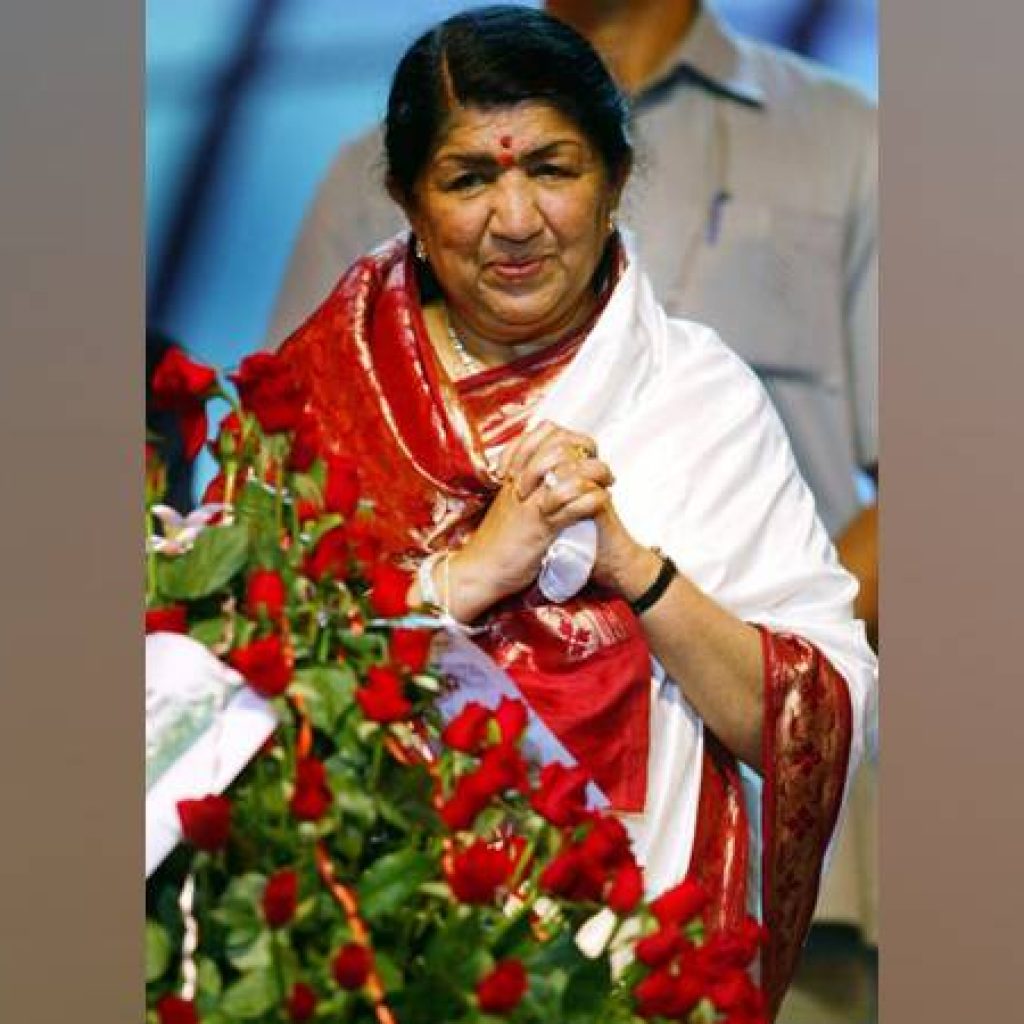She has sung for every leading lady, from Madhubala and Waheeda Rehman to Madhuri Dixit and Kajol, which is an unspoken indicator that her voice was absolutely ageless…reports Asian Lite News
On a sombre cold Sunday morning, India woke up to the devastating news of the demise of the ‘Nightingale of India’, Bharat Ratna and legendary singer, Lata Mangeshkar, due to multiple organ failure at Breach Candy Hospital, in Mumbai.
Known as ‘Sauron ki Devi’, Lata had an illustrious career spanning over seven decades, starting from her first break in the 1948 film, ‘Majboor’, with the song ‘Dil Mera Toda, Mujhe Kahin Ka Na Chhora’, with lyrics by Nazim Panipati.
She was discovered by music director, Ghulam Haider, whom she has referred to as her Godfather. One of her first major hits was the song ‘Aega Aega’ from the mystery film, ‘Mahal’ (1951), starring Madhubala and Ashok Kumar.
After that, her career skyrocketed with her giving back-to-back hits, for several decades, with every possible singer, of every decade, from Talat Mehmood, Hemant Kumar, Kishore Kumar, Mohammed Rafi, Mukesh and Manna Dey, to S.P. Balasubrahmanyam, Yesudas, Udit Narayan, Kumar Sanu and Sonu Nigam.
She has sung for every leading lady, from Madhubala and Waheeda Rehman to Madhuri Dixit and Kajol, which is an unspoken indicator that her voice was absolutely ageless.
It can never be possible to pick and choose which songs were her best, as the versatility and emotions that she brought in with each and every song was unmatched, yet here are some of her best songs, which may help us in remembering her forever, which can be the best homage we can give, to a divine soul like her.
1. ‘Dheere Dheere Machal’ (Anupama): Picturised on the lovely Surekha Pandit and Tarun Bose, this song will immediately bring a rush of nostalgia to us. The lyrics by Kaifi Azmi talks of the feeling that a woman feels towards her partner… The line ‘Roothke pehle jee bhar sataungi mai, jab manaenge woh maan jaungi mai’ (I will trouble him a lot by getting upset, but when he will try to make it up to me, I will accept him again), is sure to bring a lovely smile on our faces. The lovely music has been composed by Hemant Kumar.
2. ‘Lag Jaa Gale’ (Woh Koun Thi?): It can never be possible that we talk about Lata Mangeshkar and not talk about this song. This song has been immortalised by Lata’s melodious voice that flows like a smooth river. Lata has brought in the yearning of a lover so well that it is sure to take us down memory lanes. The song has been picturised on the evergreen beauty, Sadhana and Manoj Kumar. The lyrics are by Raja Mehndi Ali Khan and the music has been composed by Madan Mohan.
3. ‘Chalte Chalte Yun Hi Koi’ (Pakeezah): This movie’s entire album was extra special as it was the last film of legendary actor Meena Kumari, who passed away shortly after its release. The film became a cult classic and was immortalized by Lata’s soulful renditions. The song ‘Chalte Chalte Yun Hi Koi’ is extremely special as it has Lata’s voice intertwined with sitar and table, especially in the parts where she sings ‘ye chirag bujh rahe hain’, the jugalbadi of sitar, table and Lata’s voice is a divine blessing for any music lover.
4. ‘Ajeeb Dastan Hai Ye’ (Dil Apna Aur Preet Parai): Picturised on Meena Kumari and Raaj Kumar, this song has western instruments in abundance, with singers yodelling and guitars and saxophones playing, but has a haunting pain of the white saree-clad leading lady in it, which could only have been perfectly expressed by someone like Lata Di.
The lines, ‘Mubaakaken tumhe ki tum, kisike noor ho gaye, kisike itne paas ho, ki sabse door ho gaye’ (congratulations that you have become a part of someone. You have gotten so close to someone that you have become distant from everyone), hits our hearts like opening an old forgotten chapter of life. The song has been composed by Shankar Jaikishen and the lyrics have been penned by Shailendra.
5. ‘Pyaar Kiya Toh Darna Kya’ (Mughal-E-Azam): A fearless declaration of love by a lady, this song, picturised on Madhubala, Prithviraj Kapoor and Dilip Kumar, has the leading lady of the film, boldly confessing her love for the prince to the Emperor, Akbar, knowing that she might face the consequences for it. Lata ji immaculately brings in every emotion conceivable, be it love, softness, boldness and absolute fearlessness.
The line ‘Jhuk na sakega ishq humara, charon taraf hai unka nazara’, in which the camera shows every possible mirror reflecting the mesmerizing Madhubala, is still one of the best cinematic moments in the history of Indian Cinema. The music was composed by Naushad and the lyrics were penned by Shekeel Badayuni.
6. ‘Ae Mere Watan Ke Logon’: The melodious, patriotic and heart-wrenching song, ‘Aye Mere Watan Ke Logo’, was written after the Sino-Indian War, to give tribute to all those who gave their lives to protect the Nation. The song has since become a symbol of Indian nationalism. When Lata Didi sang it at the National Stadium on 27 January 1963 in the presence of former Indian President Dr S Radhakrishnan and former Indian Prime Minister Jawahar Lal Nehru, the then Prime Minister’s eyes welled up. PM Nehru said that a true India would be completely moved by this song. The song has been penned by Pradeep Kumar and the music was composed by C. Ramchandra.
7. ‘Ye Kahan Aa Gaye Hum’ (Silsila): One of the biggest hits of 1981, was undoubted, ‘Ye Kahan Aa Gaye Hum’. The range that Lata Didi could reach with her voice, when she was at that time, in her early 50s, left everyone in awe of her. Her enchanting voice became the love anthem for every lover at that time, and to this day, is considered one of the best romantic songs. The song has been picturised on the evergreen beauty, Rekha and Amitabh Bachchan, who also lent his voice to the song, like that of a lover, pining to get united with this loved one. The lyrics are by Javed Akhtar and the music has been composed by Shiv-Hari.
8. ‘Kuch Na Kaho’ (1942: A Love Story): The last film of R.D. Burman, was the raging hit, ‘1942: A Love Story. This particular song, which was had two versions, had Lata Ji sing the female version, while Kumar Sanu sang the male version. When she sung the line ‘Samay ka ye pal tham sa gaya hai’, it literally had the feeling that time stopped for some time. That was the magic in her voice, even at the age of 65. The lyrics of the song was penned by Javed Akhtar. The film starred Manisha Koirala, Anil Kapoor and Jackie Shroff.
9. ‘Lukka Chuppi’ (Rang De Basanti): At the age of 77, Lata Didi voiced this song, that brought in tears to every person’s eye, especially that of mothers. In the song, a mother, who can’t find her child, asks him to stop playing ‘Hide and Seek’ with her as she is getting worried about him. The pain, the restlessness, the anxiousness and the love of a mother, all have been so beautifully and soulfully sung by Lata ji, that even the hardest of hearts got moved. A.R. Rahman, who composed the song, also voiced it with her, while the heart-wrenching lyrics were written by Prasoon Joshi.
10. ‘Naam Gum Jayega’ (Kinara): A song, that is symbolic of Lata Mangeshkar’s life and illustrious career, is this song, from the film, ‘Kinara’, starring Jeetendra and Hema Malini. The song says that a person’s name can fade away and their face can become unrecognizable, but their true identity is their voice, which would remain eternal. The beautiful lyrics have been penned by Gulzar and the music has been composed by R. D. Burman.
There are even more memorable songs, that have been given voice and immortalized by Lata Mangeshkar. India has been truly blessed that a soul like Lata, took birth in her soil. Her contribution to Indian cinema is invaluable and she will forever reside in the heart of every Indian. (ANI)

